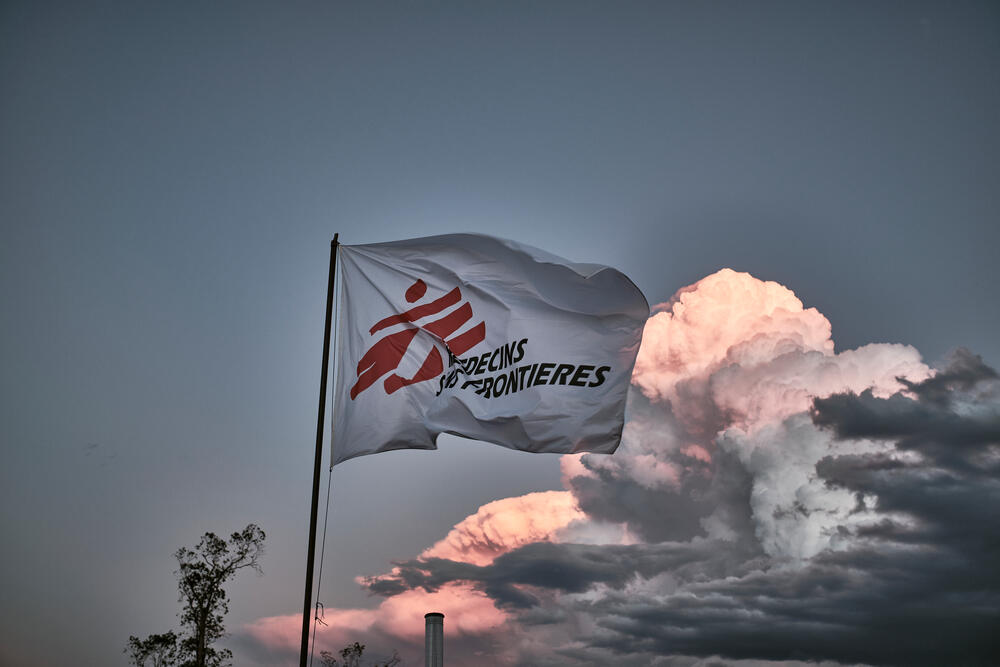DRC: Second MSF staff member is shot dead in Masisi
On the evening of 18 April, an Médecins Sans Frontières / Doctors Without Borders (MSF) nurse was shot dead in his home in Masisi town, in eastern Democratic Republic of Congo (DRC)’s North Kivu province, by a gunman in military uniform.
The staff member worked at Masisi General Referral Hospital as a nurse and is the second MSF staff member to be killed in Masisi town in the past two months, and the third to be fatally shot in North Kivu this year following the intensification of conflict in DRC in December 2024.
Earlier in the evening of 18 April, two armed men dressed in military fatigues and carrying assault rifles attacked and robbed civilians in Masisi town, before breaking into the house of the MSF nurse to rob residents. During the incident, the attackers opened fire, fatally wounding the MSF nurse with two shots to the chest.
MSF urges for the end to violence against civilians and aid workers.
“We strongly condemn this terrible act, which cost our colleague his life, and which reflects the severely deteriorating security situation we have witnessed in North and South Kivu since the beginning of the year,” said Emmanuel Lampaert, MSF's country representative in DRC.
“Week after week, our teams are not only witnesses but also victims of violent incidents targeting civilians, humanitarian workers and medical facilities. This must stop immediately.”

Help us prepare for the next emergency
Insecurity is everywhere
Since the start of 2025, MSF teams have witnessed violent incidents on an almost daily basis – and on a number of occasions have been the victims. In this time, three MSF staff have been shot dead in North Kivu, either in the course of their work or as a result of violence against civilians.
On 20 February, an MSF radio operator on duty at MSF’s base in central Masisi was killed in crossfire between VDP/Wazalendo and M23/AFC fighters.
"We are witnessing persistently high levels of crime and repeated violent incidents affecting civilians, especially at night"
A few days later, another MSF worker was shot dead in the middle of the night at his home in Goma. In the past few months, other colleagues have been shot and wounded, the most recent of whom is currently hospitalised in Goma.
“Even in locations where armed clashes have ceased, insecurity is everywhere,” says Mathilde Guého, MSF head of programmes in North Kivu.
“In addition to armed violence that directly affects our hospitals and bases, on a daily basis we are witnessing persistently high levels of crime and repeated violent incidents affecting civilians, especially at night: murders, sexual violence, gunshot wounds, extortion, home invasions, intimidation and more.”
Protect civilians
In response to this series of violent incidents, some 15 of which have directly affected MSF teams, ambulances, offices and the health facilities it supports since January, MSF is calling on the competent authorities to hold those carrying weapons accountable and to take immediate measures to ensure the safety of civilians and humanitarian workers, to combat crime and to put an end to the abuses its teams witness daily.
“We remind all parties – M23/AFC, VDP/Wazalendo, FARDC – that the protection of civilians and their property in conflict zones is a legal obligation,” says Lampaert. “All relevant authorities must act urgently to uphold this responsibility.”
In DRC, nearly 3,000 locally hired and international staff work directly for MSF, alongside Ministry of Health staff, to provide medical care to vulnerable people across the country.
MSF and the conflict in Democratic Republic of Congo (DRC)
The rapidly evolving conflict between the armed group M23/Alliance Fleuve Congo (AFC) and the Congolese army in Democratic Republic of Congo (DRC) has intensified since December 2024, displacing hundreds of thousands of people and resulting in many casualties and violent injuries.
The war has seriously affected the already critical humanitarian and health situation in eastern DRC, where people face the risk of infectious disease outbreaks, sexual violence and inadequate living conditions.
Médecins Sans Frontières / Doctors Without Borders (MSF) teams – already present in DRC – have been responding to the crisis from its first moments.
